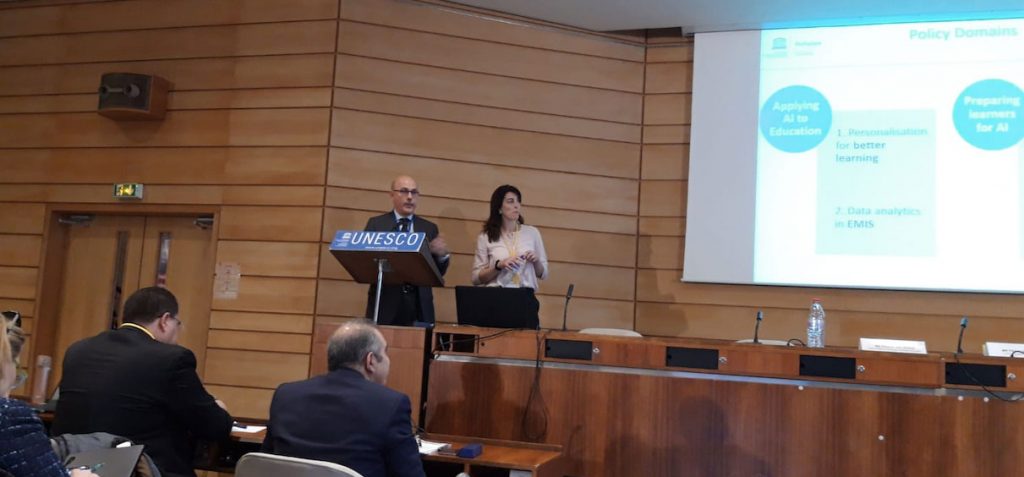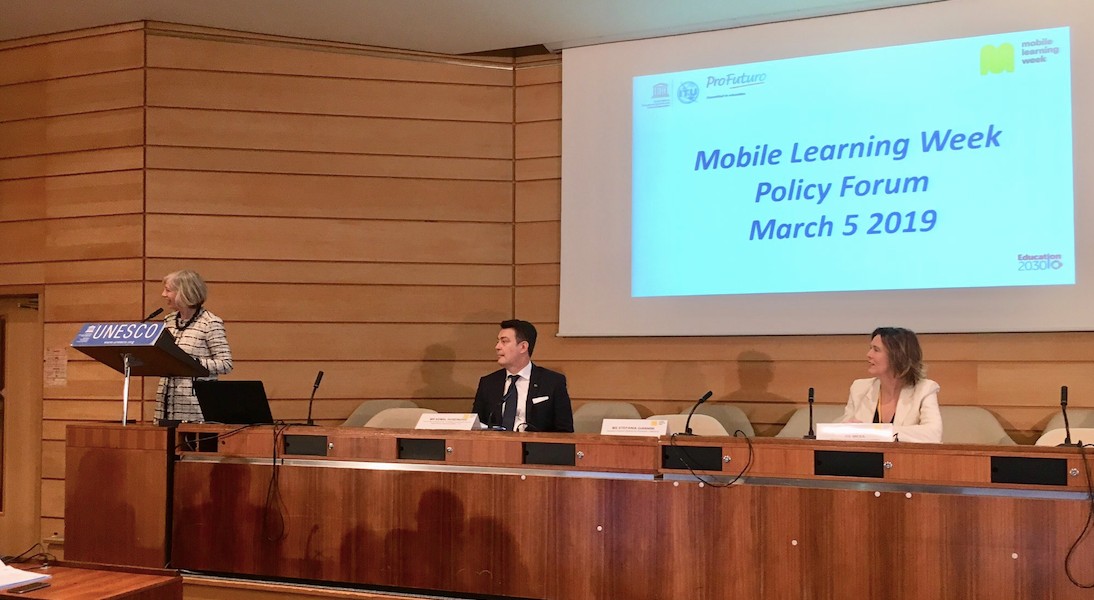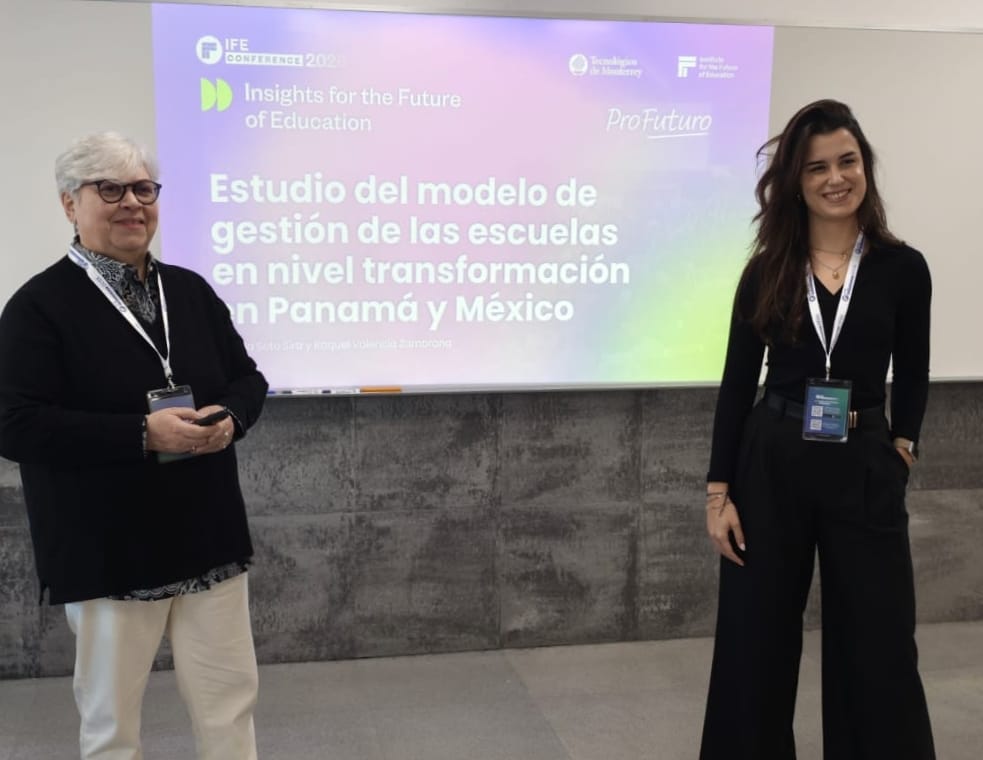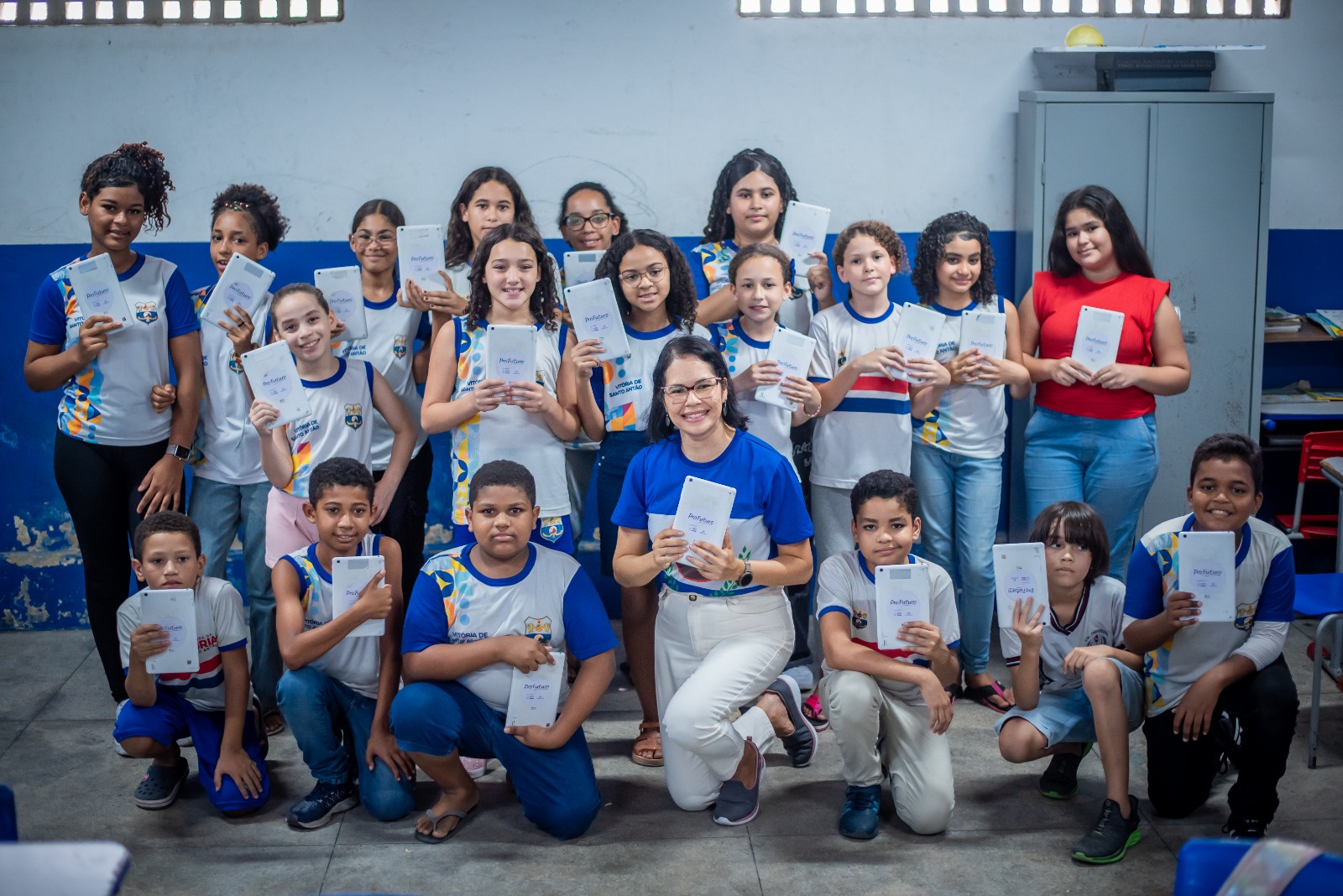Did you know that artificial intelligence applied to education is closer than we think? One of the challenges facing today’s society is to use digital technology to enable quality education and promote opportunities for everyone. This was the point of departure for the eighth edition of Mobile Learning Week, held in Paris from 4 to 8 March, which brought together international experts to debate this year’s theme, namely the opportunities and threats in the use of artificial intelligence (AI) in education, particularly in developing countries.
At the Policy Forum in Mobile Learning Week, ProFuturo presented the reference document entitled “Artificial intelligence in education: challenges and opportunities for development”, prepared in collaboration with the UNESCO and with experts in artificial intelligence.
This will serve as a framework for action to help countries incorporate AI into their public policies in the education sector, particularly developing countries. The document highlights the main issues involved in integrating and adopting AI and its associated technology.
Sofía Fernández de Mesa, General Manager of ProFuturo, who attended the inauguration of the policy forum, together with Stefania Giannini, Assistant Director-General for Education at the UNESCO and Kemal Huseinovic, Chief of Infrastructures, Enabling Environment and Cyberapplications at ITU, highlighted the importance of partnerships in implementing sustainable and scalable initiatives: “Agreements between developing countries, donors, international organizations, civil society, the private sector and foundations are crucial to guaranteeing synergies and accelerating the development toward the achievement of the 2030 Sustainable Development Goals”.

During her talk, the General Manager of ProFuturo said: “It is not enough simply to expand access to education; the challenge is to improve its quality”. She added: “It is up to us to decide how we redefine the world through digital tools and how we use technology to improve education and reduce the inequalities existing in our societies”.
According to Sofía Fernández de Mesa: “We need to maximize the benefits of artificial intelligence (AI) and ensure the correct use of technology and digital tools”.
In this same line, the occasion marked the presentation of the reference document entitled “Artificial intelligence in education, opportunities and challenges for development”, prepared jointly by the UNESCO and ProFuturo with the collaboration of numerous experts in artificial intelligence (AI).
At the presentation during the policy forum, Francesc Pedró, head of the UNESCO’s ICT and Education Policy Department and Paula Valverde Revuelta, Product Manager at ProFuturo, outlined the opportunities and challenges involved in applying AI in the educational environment.
Paula Valverde said: “This document will help lawmakers in the field of education and offer an insight into how artificial intelligence will affect the education sector so they can establish thoughtful and appropriate legal responses”.
The aim of the document is to identify the implications of artificial intelligence (AI) for education policies, based on four major challenges: guaranteeing an inclusive and equitable use of AI in education; leveraging technology to improve education and learning; encouraging the development of skills for work and life in this new digital age; and ensuring a transparent and auditable use of data on education.
In order to tackle these issues the reference document has been divided into three parts:
– The first deals with how AI can be applied to improve education and teaching through practical cases, by giving examples of how AI technology can help education systems use data to improve quality and ensure equal access to education in developing countries.
– The second involves preparing students to flourish in an AI-saturated future, and focuses on the change required in the education system to tackle a world with AI, by exploring the experiences of governments and educational institutions.
– The third and last part contains a summary of the six main challenges and implications for public policy in introducing AI in education and how to prepare students for an AI-driven scenario. These challenges are based on developing a comprehensive public policy on AI for development; guaranteeing an inclusive and equitable use of AI in education; preparing teachers for an education driven by AI; developing inclusive and quality data systems; ensuring the significance of the research into AI in education; and finally, addressing ethics and transparency in the collection, use and disclosure of data.
Finally, the document ends with an invitation to open up new debates on the uses, possibilities and risks of AI in education for development.
The constant emphasis throughout the whole presentation is on the need to make progress in understanding how the UNESCO member states and other institutions can harness the power of technology in today’s society in order to improve education
With the aim of measuring the results of the program and improving education, ProFuturo uses learning analytics to analyze the data from its network of education data at the global level, thanks to its presence in 28 countries in Latin America, sub-Saharan Africa and Asia.
ProFuturo aims to develop an “education quality algorithm”, through AI that helps to measure the results of its program and make decisions based on data and on the personalization of teaching. This furthers ProFuturo’s ultimate aim of improving the quality of education and teaching for boys and girls in vulnerable environments.






